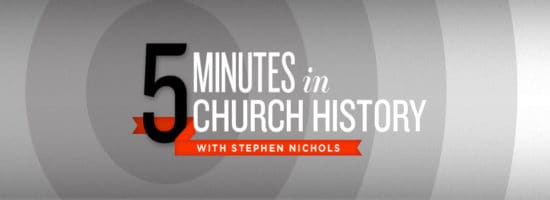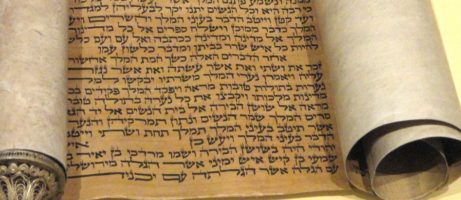
The Reformers and the Bible
On this episode of 5 Minutes in Church History, Dr. Stephen Nichols interviews Dr. Jonathan Gibson on the riches of studying Scripture in its original languages: Hebrew, Aramaic, and Greek.
Stephen Nichols: Recently, I interviewed Jonathan Gibson and Mark Earngey, who published the book Reformation Worship: Liturgies from the Past for the Present. Today, I am joined once again by Dr. Johnny Gibson. Dr. Gibson, welcome back.
Johnny Gibson: Thanks very much, Steve. Good to be with you.
SN: You are the assistant professor of Old Testament at my alma mater, Westminster Theological Seminary.
JG: Yes, that’s correct. You’re still spoken about around the corridors.
SN: Well, I loved my time there, and I miss it. Now, let me get this right, just so we identify your accent. You were born in England, but you were raised in Northern Ireland, and you studied at Cambridge.
JG: Yes, I was born in England, raised in Africa as a missionary kid, and then, from the age of seven, lived in Belfast where I was educated. Then, I lived in South Africa for a year, went to university in Northern Ireland, and then went to Australia for my first theological degree at Moore College in Sydney, where I met my wife, Jackie. Then, I went to Cambridge for my Ph.D., and we lived there for seven and a half years, where I served as a Presbyterian minister.
SN: And now you’re in Philadelphia, the City of Brotherly Love.
JG: That’s correct.
SN: Well, welcome to America. Let’s talk for a bit. You’re an Old Testament professor by trade and training, but you obviously have an interest in the Reformers. One of the things I think people don’t often realize about the Reformers is that they were significantly trained in the languages. Many of the key Reformers knew Hebrew very well and their exegetical work in Scripture has had a lot to do with their work as theologians. Just talk to us a little bit about the Reformers, and especially their work in the Old Testament.
 JG: We tend to think, rightly so, of the Reformers as people who recovered the main doctrines of the gospel and the five solas of the Reformation, but they did so by returning to the original sources. The sort of motto of Reformation studies was ad fontes, back to the sources, and so they went back to the original languages of Hebrew, Aramaic, and Greek. Of course, they operated and worked in the language of Latin, but the thing that they were concerned with was to return to the Scriptures. It was really in doing this that brought about the recovery of the doctrine of justification by faith alone, as Luther realized that some translations had not accurately rendered what had been passed down.
JG: We tend to think, rightly so, of the Reformers as people who recovered the main doctrines of the gospel and the five solas of the Reformation, but they did so by returning to the original sources. The sort of motto of Reformation studies was ad fontes, back to the sources, and so they went back to the original languages of Hebrew, Aramaic, and Greek. Of course, they operated and worked in the language of Latin, but the thing that they were concerned with was to return to the Scriptures. It was really in doing this that brought about the recovery of the doctrine of justification by faith alone, as Luther realized that some translations had not accurately rendered what had been passed down.
These reformers going back to the original languages and recovering the true doctrines of the gospel as theologians, but you also find each of them doing the work as pastors. The thing that’s always struck me is just how sensitive they are as they exegete the text from the original languages. You see it especially in Calvin’s sermons and commentaries. Even though he never referred to the Greek or the Hebrew in his sermons, what is amazing is that when he walked into the pulpit, he always walked in with just the Bible in the original language. As you read one of Calvin’s sermons today, if you’re familiar with the Hebrew or the Greek text, you can see that he is following the contours of the text in its original language. This was an aspect of their work that required them to be details-people. We often say, “The devil is in the details.” Well, I like to tell my students at Westminster, “God is in the details.” And He’s interested in grammatical syntactical details, because they are the foundation for rich theological truths that God’s people need to hear.
JG: So, I think we can learn from the Reformers of their love of the original languages and their use of them in their sermon preparation as they preached each week to God’s people.
SN: I love that expression, “God is in the details.” And I love the image of Calvin hauling his Hebrew text into the pulpit as he preached. Thank you, Dr. Gibson.
Stay connected with 5 Minutes in Church History by getting the weekly podcast on iTunes, SoundCloud, or via RSS. You can also subscribe to the blog via RSS and follow us on Twitter and Facebook.
(This podcast is by Ligonier Ministries. Discovered by Christian Podcast Central and our community — copyright is owned by the publisher, not Christian Podcast Central, and audio is streamed directly from their servers.)